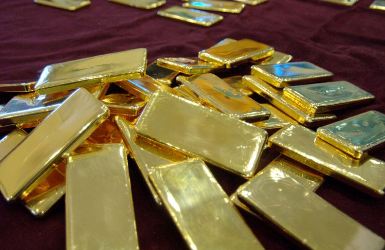Sudan produces over 500 tonnes of Gold within 9 years: official
January 28, 2017 (KHARTOUM) – Director General of Geological Research Authority of Sudan Mohamed Abu Fatima said the country has produced more than 500 tonnes of gold within nine years pointing to Sudan’s massive gold reserves.

He added that Sudan produced more than 500 tonnes of gold since 2008, saying the tapped mining area does not exceed 20% of Sudan’s total size.
Abu Fatima stressed that Ministry of Minerals is developing a new strategy to deal with the minerals investment after the ease of sanctions, pointing they would put in place a strict protocol to receive major investors.
For his part, the director of policies at the Central Bank of Sudan (CBoS) Mohamed Osman said the mining revenues have exceeded $4 billion in 2016, pointing to the adverse impact of sanctions on the mining sector.
He pointed that the CBoS has contacted the international banks to resume financial transactions with Sudan, expecting the dealings with foreign banks would resume within two weeks.
Osman also pointed to the formation of a committee to reconsider policies issued before the ease of sanctions, saying the CBoS has ended its monopoly over gold trade and allowed private companies to buy and sell gold.
He acknowledged the significant negative implications of the CBoS’s monopoly over gold trade especially with regard to the rise in inflation rate.
Sudan currently ranks third in gold production behind South Africa and Ghana but aims to land in the first place by 2018.
Gold has become one of Sudan’s largest exports which partially compensated for the loss in oil revenues, which accounted for more than 50% of income until 2011 when South Sudan seceded, thus taking with it most of the country’s oil reserves.
(ST)
